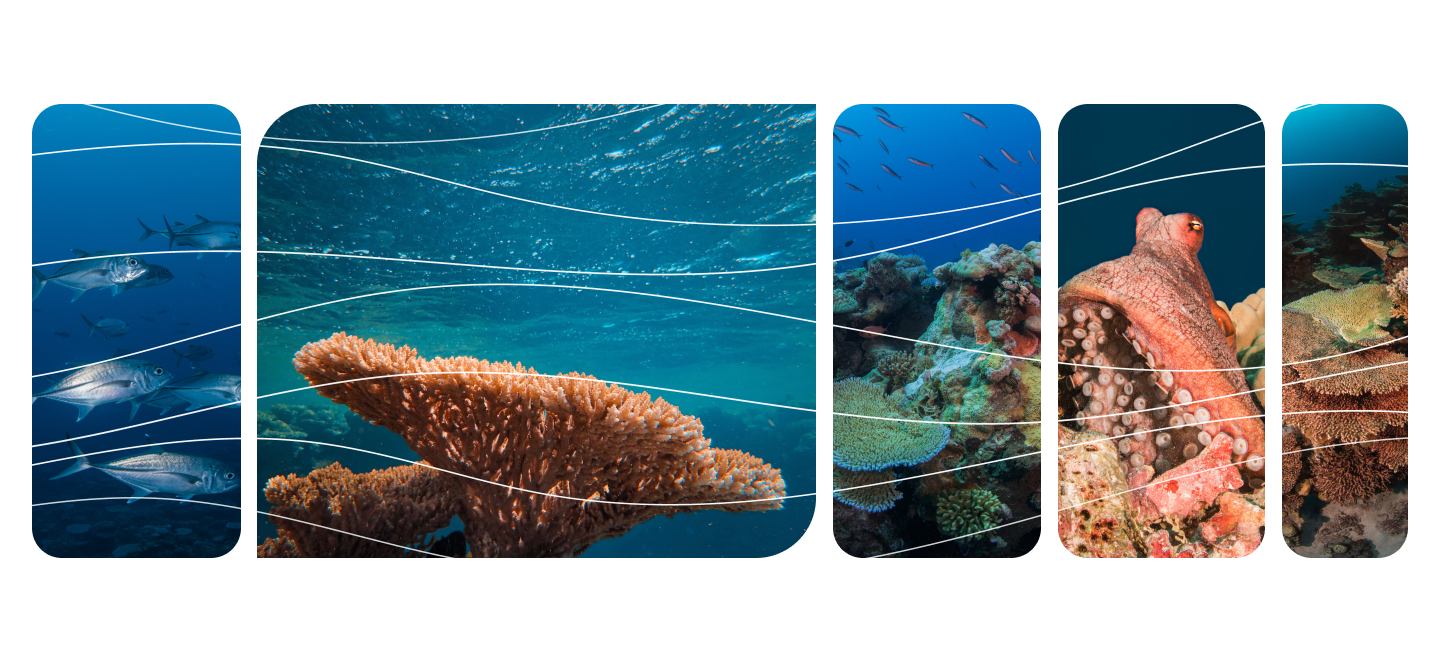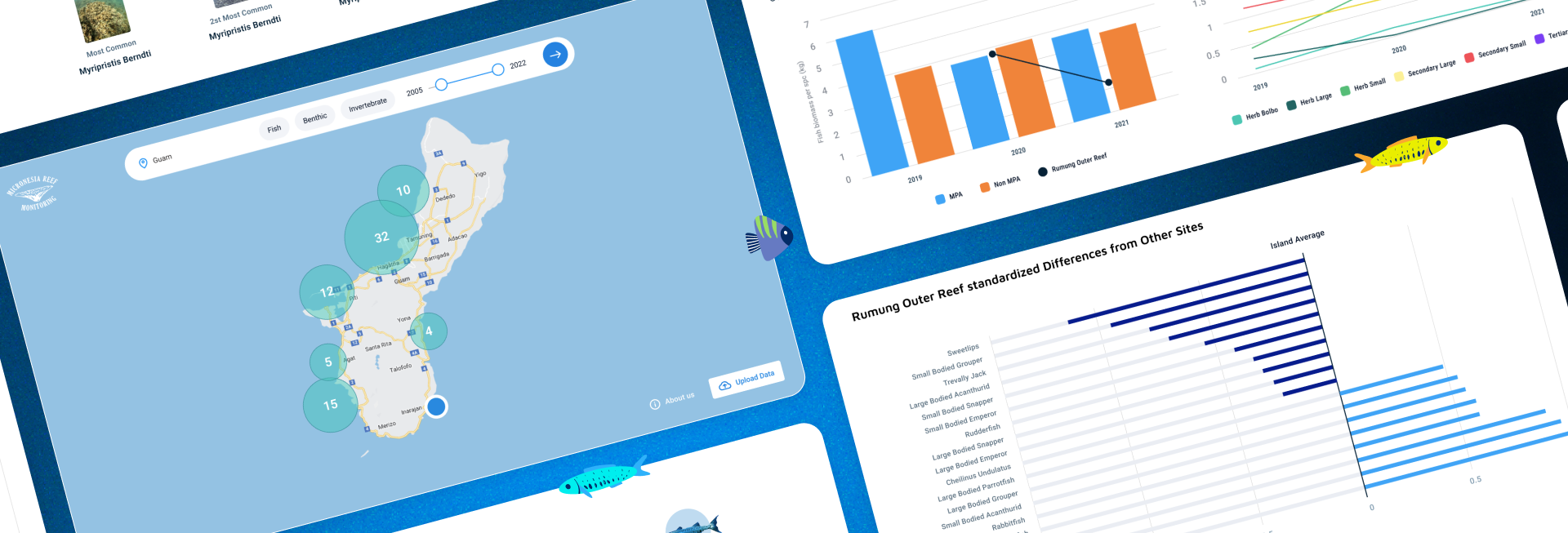How R Shiny Helps Protect Coral Reefs in Micronesia
Appsilon is on a mission to tackle global challenges around climate change and biodiversity loss – the biggest threats faced by humanity. We collaborate with scientists, organizations, and businesses to make a positive impact on the world.
Coral reefs are essential to the survival of marine life, and for the people of Micronesia, they are a crucial resource that supports their economy and way of life.
However, they are increasingly threatened by climate change. As the ocean warms due to global warming, coral reefs are experiencing more frequent and intense heat waves that cause coral bleaching (when the coral loses its symbiotic algae, which gives it color and nutrients and can eventually lead to the death of the coral).
These marine heatwaves are the most significant threat to coral reefs worldwide, and by extension, to the local communities dependent on them.

Empowering Conservation through Tech: Micronesia Challenge and Reef Monitoring App Collaboration
The Micronesia Challenge, a conservation initiative created to mitigate these negative impacts, was started by local leaders of five island nations of Micronesia, who made a commitment to conserving at least 50 percent of their local marine resources.
Through our Data4Good Program, we partnered with the University of Guam to develop the Micronesia Reef Monitoring app using R Shiny. This led to a successful collaboration between different stakeholder groups, from academia, through the private sector to local NGO and Governmental programs, all in service of positive impact on the people and planet.
Marine Ecosystem Monitoring and Data Collection
The scientists and conservationists working in the islands of Micronesia have been collaborating with local communities to collect crucial data on the health and recovery of coral reefs impacted by climate change. Additionally, they have been tracking key environmental metrics such as fish abundance and biomass trends in and outside of Marine Protected Areas.
Over the years, they created a large dataset, full of insights into the marine ecosystem’s current state and projected future. There was but one problem, large and complex data can be difficult to manage and analyze, especially in areas with limited infrastructure and resources. The valuable insights were locked out, hidden in the vastness of data.

The Micronesia Reef Monitoring App
With the deployment of the Micronesia Reef Monitoring app, this data is now easily accessible, and robust visualizations can be used to inform and support conservation efforts aimed at sustaining valuable ecosystem services provided by the reef ecosystems.
The Micronesia Reef Monitoring App, built in R Shiny, shows details on the number and types of fishes that inhabit certain sites and allows users to look at changes over time and comparisons with other locations, including analyzing how well management measures (e.g. fishing restrictions in protected areas) perform.
It displays complex sets of data in an easy-to-understand way, informing conservation efforts. It also helps spot potential issues endangering local coral reefs.
With quick access to data and insightful data visualizations, local conservationists and decision-makers can now better understand the needs of the coral reefs, assess their health, track progress, and manage conservation efforts.

Collaboration and Impact with Shiny
This R Shiny project has led to immediate conservation impacts for many islands and many different resources. The data that had been collected over many years is now at the fingertips of local, regional, and global stakeholders. It’s changed the speed of action by offering immediate access to status and trends that are now informing conservation efforts and helping management evolve.
Two real-world examples of the positive impact of a Shiny app:
- The app provides necessary tools to automatically measure progress towards reaching the goals to effectively manage 50% of coral and fisheries resources by 2030 under the commitment of the Micronesia Challenge.
- It also helped understand and eradicate illegal harvesting of sea cucumber in Pohnpei island. The illegal fishery was occurring with just a few people knowing. Once the app was online, analyzing the data streams isolated the problem/date, and led to a successful court case to end the illegal harvest. Stocks are now reportedly starting to recover.
Data Science and Technology in Service of Conservation
The Micronesia Reef Monitoring app is an example of how technology can help us protect our planet’s biodiversity, as well as serve the local populations dependent on natural resources. With the app, data analysis is made more efficient, and the insights gained help conservationists and decision-makers make better decisions.
We hope that this project will inspire others to use data science and technology to solve the conservation problems that communities around the world face.
More on Data4Good
Interested in using technology for positive impact? Get more information in your LinkedIn feed by signing up for the Data4Good Newsletter, and visit our Data4Good page. There you’ll find more examples of our D4G projects going from Science to Impact like using interactive dashboards and data science to visualize diversity and drive policy.
If you have an impactful project that can make a difference, we’re here to help! Contact us to see if we can apply our domain expertise to your project.
This article was originally published on appsilon.com


Add the first post in this thread.